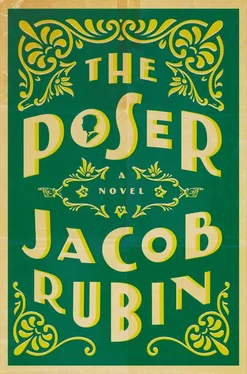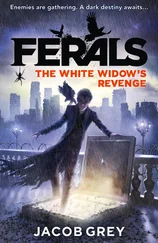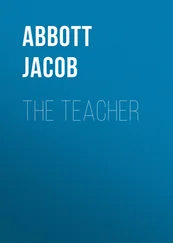She wrote back.
SEPTEMBER 16
My Giovanni,
All of it makes me sick, and yes, Max has been giving me sly little updates on all that you’re doing. I’ve been thinking about this Bernard business. I was thinking of when you were a child: Do you remember the day you learned about the guards who stood outside the royal palace all day and never moved once? Remember, they showed you in school? You loved these palace men who barely ever blinked, even with thousands of visitors passing right in front of their eyes, and you decided one day that you were going to be one of these guards. Do you remember, Giovanni? “I was born to be a guard,” you told me. And you stood still for a long time. You were looking out into the distance just as if the queen were behind you! You did it late into the night, but in the morning I woke up and heard the news report going full blast on the radio. It had come on, and you were mimicking it. I said, “I thought you were born to be a guard?” and you said, “I was wrong.” Well, it’s true — you are not a guard. Remember, there is so much more for you to be in life. I will keep my distance, for now, I’ll agree to that, but you must, must write me back.
M
I did, keeping these exchanges secret from Bernard, who would have disapproved, I knew. Yet, he shouldn’t have, for these letters, if anything, helped sustain my imitation of him, providing a release, an imaginary realm in which I could once again sound like Giovanni. The two (writing like Giovanni, living like Bernard) aided each other, in fact, as a periscope allows a submarine to dart along, unseen, unharmed. And through this correspondence, all my new adventures, the characters I met, were soon layered with a second, deferred pleasure: that of imagining how I would describe them in my letters to Mama.
So it was the night of the premiere.
Years before a two-hundred-yard desert was built on the Monument lot to satisfy the director Arnold Tolstoy, a by-all-accounts impossible man who considered the set a necessity for the filming of The Raj , the three-hour epic that was to make his name. As Tolstoy had just made a killing for Monument Pictures with The Impossible Tower , the studio heads happily met his request. Over a period of months, the trucks passed day and night, hauling in two-ton bags of sand marked by the hues (Persian khaki, oasis yellow) Tolstoy felt necessary to achieve what he called a “heightened verisimilitude” of the Arabian expanse. Union carpenters spent months shaping dunes of pleasing composition and plausible distance. An elaborate lighting system was installed to simulate the passage of the desert sun, and its absence, which meant the stringing up of a vast black tarp wired with a new kind of scattered electrical light. In the last weeks, hundreds of scarabs were set loose in the sand. When The Raj bombed, ending Tolstoy’s career, many wondered what would become of the lot. But Monument Pictures honored scale above all, whether in catastrophe or triumph, and elected to maintain the Desert as an all-purpose venue for parties and premieres. It was there they held the event for Everyman .
The picture had premiered earlier that night at the Broken Temple, a theater on Last Hour Boulevard built to seem a half-century old. Monument Pictures had secured the attendance of its best actors and actresses as well as other capering types: elegant figures, mainly, whom I didn’t recognize but who carried themselves with the brisk, supple air of the broadly known. They chatted and reached across the soft-cushioned rows to shake a hand or blow a kiss; some saluted far-off acquaintances or performed some snappy task in their handbags before turning, at the cue of the dimming lights, to take their seats, hiking up their pant legs or sliding their hands cleanly under the seat of their dresses. The theater went dark. A lively silence. I sat, alert as a rabbit, in the opera box with Bernard, Max, Frankie, Lou, and Ms. Julie Dark, the hired woman from the Jade House and my companion for the evening.
Since my first trip with Bernard, I had returned to the Jade House several times, beginning to understand it more. Ms. Dark, I saw, was an exquisitely attuned performer. She could read in the way a man smoked his cigarette a desire to be punched playfully on the arm or petted on the shoulder. In a moment she could switch from carnivorous desire to motherly concern, and even, at times, performed a sort of under-self , in which costume she would, in the longueurs of the late evening, divulge heartrending details about her brother Dennis and his long struggle with leukemia. Not very much of it was convincing, but it didn’t have to be. It was the very exaggeration that was of value, like old Greek theater, with its swooning and its masks.
On future occasions I would be provided with different women from the Jade House. Yet each one, whether a broad-shouldered blonde or shy-eyed black girl, went by the name Julie Dark and each, it seemed, had consulted the same well-kept file or card catalogue or whatever organizing system the house used to keep track of notable moments from our previous outings. In this way, each new girl (who said, “So good to see you again,” when stepping into the town car or appearing at my door) helped contribute to the illusion of a history, referring with ease to the time the paparazzi chased us outside Town Hall or that oyster night at the Tangiers.
Some of these pretenders, of course, demonstrated more skill than others, and yet I came to enjoy the poorer ones in the way one relishes even amateurish renditions of a familiar song, each, in the vagaries of their difference, pointing to some ur-melody one could never actually hear. Except one girl, a chatty type with bags under her eyes, at the crucial divot in the night when she was to lay her head on my chest and relay the latest episode in the long sufferings of her dear brother Dennis, so mangled the story (making him a younger brother and sentencing him to lung cancer instead of leukemia) I immediately, in a strange, high-pitched voice, called for the car to pick her up and, after she left, paced madly around the bed, feeling as I had that first day of shooting. This feverish state of mind might have lasted for several hours if I hadn’t swallowed two more of those green pills, a hefty supply of which Lou had given me.
To myself (I never discussed them with others) I referred to these panicked spells as bursting moments and was quite worried, in fact, that I would suffer one the night of the screening. I took a pill before leaving, but when the movie started up in the held silence of that theater, my heart was going hard. There he stood, me, twenty feet tall, peering through the blinds of an office window onto the traffic on Fifty-seventh Ave. A man could be heard shouting from the street, the blinds tinkling under my fingers. Onscreen I raise the cigarette to my mouth as if posing a question. So, deliciously, is presented the life of this character: a man who studies the hieroglyph of traffic from a tenement window. Harry Knott, posing as a private dick hired on the main by desperate men days into their second ulcer. But when a customer comes in, a nervous hat-fiddling man, asking for “a new fabulous raincoat,” a code word, we learn the government needs Harry, for Harry is a spy.
We had filmed it on the lot. Rather than a busy avenue, the window looked out on a pile of orange utility cables. But the camera turned that moment into a succulent image, such was the camera’s genius. And as the movie went on, I watched myself in a kind of rapture. I watched myself kiss a woman in that way that involves a dip. I shot a man dead at the airport. I could not wait to describe to Mama the dream and statue they had made of her son.
Читать дальше












